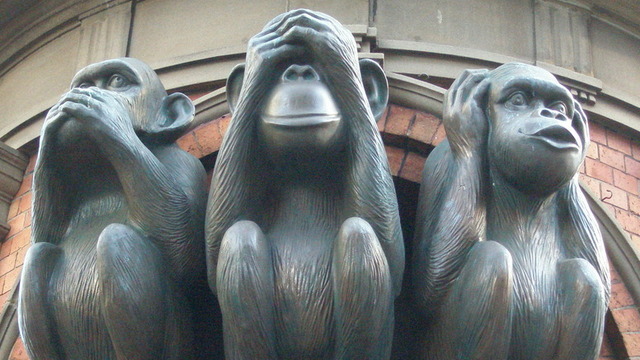
In a Monday court filing, Warner Brothers admitted that it has issued takedown notices for files without looking at them first. The studio also acknowledged that it issued takedown notices for a number of URLs that its adversary, the locker site Hotfile, says were obviously not Warner Brothers' content.
Hotfile has been locked in a legal battle with Hollywood studios since February; the studios accuse the site of facilitating copyright infringement on a massive scale. Hotfile counters that it is immune from liability for the infringements of its users because it complies with the notice-and-takedown procedures established by the Digital Millennium Copyright Act. But Hotfile has also tried to turn the tables by arguing that one of the studios, Warner Brothers, has itself violated the DMCA by issuing bogus takedown requests.
In a September filing, Hotfile described how it provided Warner Brothers with an automated takedown tool to enable the studio to rapidly remove content it believed to be infringing. As we described it at the time, the studio doesn't seem to have used the tool very carefully:
Hotfile alleges that Warner Brothers abused this tool by submitting thousands of takedown requests for files it didn't own. Hotfile suggests these requests were generated by automated crawlers without adequate human supervision. For example, Warner Brothers owns the copyright for the 2009 movie The Box. Hotfile alleges that Warner Brothers scraped websites for hotfile.com links containing the phrase "the box," which of course led to takedowns for dozens of files that were clearly not Warner Brothers content. For example, Warner Brothers sought the removal of an audiobook called "Cancer: Out Of The Box" and a BBC production of "The Box that Saved Britain."
Indeed, some of the removed files were clearly not infringing at all. Hotfile says that the most popular file removed by Warner Brothers was a free software title that had been uploaded to Hotfile by its publisher. Warner Brothers also sought the removal of the file with the URL "http://hotfile.com/contacts.html and give them the details of where the link was posted and the link and they will deal with the @sshole who posted the fake."
No, that's not a misplaced quotation mark. A scraper apparently misidentified part of a web comment as an infringing URL, and no one at the studio noticed the mistake.
In the Monday court filing, Warner Brothers confirmed key details of Hotfile's story. In particular, Warner admitted that it submitted takedown requests for "Cancer: Out Of The Box," "The Box that Saved Britain," and that "@ssholes" URL.
Warner Brothers also tacitly acknowledged removing the free software title, which it characterized as "software that had been posted alongside infringing Warner content in order to facilitate the rapid downloading of the infringing Warner content." The studio also requested removal of some gaming software, though it insists it did so with the permission of the relevant copyright owners.
The studio also "admits that it did not (and did not need to) download every file it believed to be infringing prior to submitting the file's URL" to the Hotfile takedown tool. That's because "given the volume and pace of new infringements on Hotfile, Warner could not practically download and view the contents of each file prior to requesting that it be taken down."
This is interesting because the DMCA requires a copyright holder issuing a takedown notice to state that it has a "good faith belief that the use of the material in the manner complained of is not authorized by the copyright owner, its agent, or the law." It's hard to see how anyone at Warner Brothers could have formed any beliefs—good faith or otherwise—about files it admits that no human being at Warner had even looked at.
The recently-proposed Stop Online Piracy Act, which is backed by the major Hollywood studios, would give copyright holders new powers to cut off websites' access to payment processors and advertising networks. It even includes a new DMCA-style notice-and-takedown scheme. But given the cavalier way that Warner Brothers has used the powers it already has under the DMCA, policymakers may be reluctant to expand those powers even further.
Listing image by Photograph by Frangipani Photograph
reader comments
99